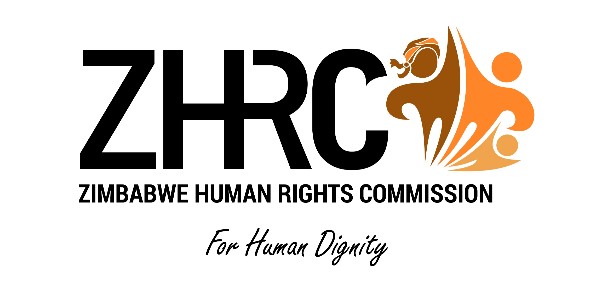
THE Zimbabwe Human Rights Commission (ZHRC) has condemned the police and army clampdown on people suspected to have looted shops and barricaded roads during last week’s protests over fuel prices, resulting in loss of lives.
BY VENERANDA LANGA
The human rights body said the action by the security forces was a gross violation of human rights and irresponsible behaviour.
ZHRC commissioners Sheila Hillary Matindike and Petunia Chiriseri told journalists in Harare yesterday that they discovered that police officers, accompanied by the soldiers, pounced on people’s houses at night, beating them up and torturing them as they hunted down people accused of looting shops and burning down properties.
The ZHRC also revealed that they were unlawfully denied permission to visit suspects in police custody to assess their condition.
“Complainants and witnesses who spoke to the ZHRC highlighted that armed soldiers and police visited their homes, starting the evening of Monday January 14, and they reported a heavy crackdown characterised by indiscriminate and severe beatings,” Matindike said.
“They would arrive at people’s homes at night or in the early hours of the day and ask all men to go outside and lie on the ground and beat up all the men, including boys as young as 11 years, and then ask them to run or arrest them.”
Those targeted were said to be men and boys who lived in shared residences with more than one family in one house and those that lived near areas where looting and barricading of roads took place, without proper investigations having been conducted.
- Chamisa under fire over US$120K donation
- Mavhunga puts DeMbare into Chibuku quarterfinals
- Pension funds bet on Cabora Bassa oilfields
- Councils defy govt fire tender directive
Keep Reading
During the random searches at people’s homes, the ZHRC said members of the public complained of their doors or windows being destroyed as police and soldiers forced entry into their homes. The arresting officers were also said to have pounced on people at night and refused to identify themselves.
“Unfortunately, the disturbances have led to a number of deaths of civilians and a police officer. A 22-year-old young man, Tinashe Choto, died as a result of gunshots and a post-mortem report read to family members by the authorities confirmed the cause of death as gun shots. At least eight deaths have been reported to the commission and mostly attributed to the use of live ammunition,” ZLHR said.
The ZHRC said their findings revealed opposition councillors, MPs and civic society leaders were either abducted or arrested in front of their children.
“At one councillor’s house, children who included a three-year-old girl narrated what happened to their father. The three-year-old gave a vivid and moving account of the beatings and arrest of her father during the late hours of the night,” they said.
Those arrested were said to be unlawfully detained for more than 48 hours, with juveniles as young as 11 years being arrested.
“Accused persons that the ZHRC saw appeared in the same clothing that they had been arrested in and were foul smelling, indicating that they had not been given access to bathing facilities. Some suspects had visible injuries and had not received medical attention, including a suspect at Mbare Magistrates’ Courts, who had a broken arm and foot,” the ZHRC commissioners said.
Matindike said torture was perpetrated through beating the men with batons on their backs while they lay on the ground, including falanga (beating under the feet and beating them with open hands).
She added that although Zimbabweans had a constitutional right to demonstrate, it must be done peacefully because the problem was clear evidence of looting, destruction of cars and property, vandalism at shops and police stations in Harare, Chitungwiza and Bulawayo.
Matindike said the perpetrators of the violence also placed barricades on roads to stop people from going to work.
“This, however, did not justify torture of citizens by the security forces as the right to freedom from torture is one right that cannot be derogated from under any circumstance. The amount of force evidenced by the injuries sustained by some of the complainants that were interviewed and the deaths that occurred which were supported by medical records reveal a case of police brutality,” she said.
Chiriseri said the commission was concerned about the continued use of the military in maintaining law and order in the country, resulting in the recurrence of the August 1 2018 post-election violence which saw soldiers opening fire and killing six civilians.
She said government must ratify the convention against torture and make assurances on non-recurrence of violence, adding that the police must do proper investigations of crimes, instead of doing crackdowns which might result in arrests and torture of innocent people.







